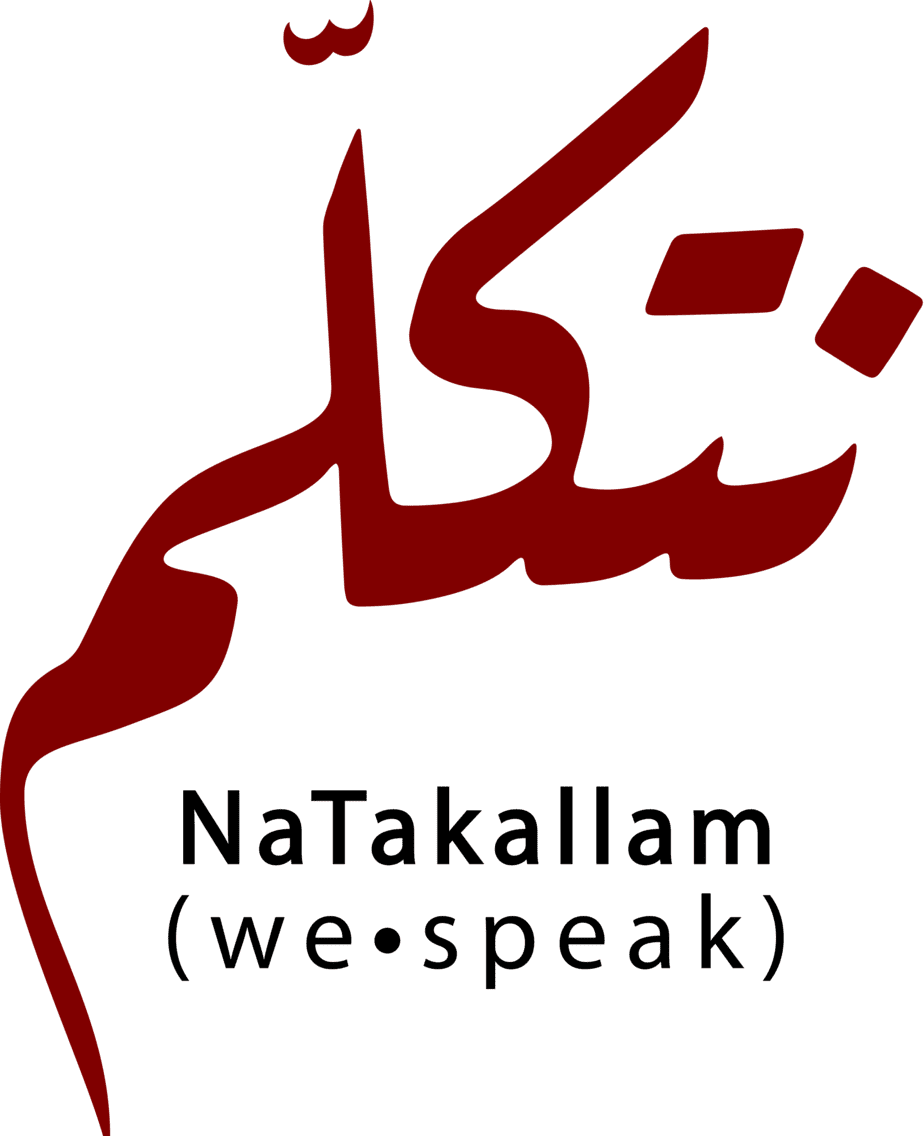Frequently Asked Questions

About NaTakallam
NaTakallam means “We Speak” in Arabic.
In 2015.
NaTakallam was founded by Aline Sara & Reza Rahnema.

About NaTakallam’s Tutors and Translators
*NaTakallam’s language tutors are referred to as Language Partners (LPs) or language partners.
Some of our Language Partners are qualified teachers, while others have had tutoring/teaching experience or more general interpersonal skills and a related or relevant background. All have been thoroughly tested by NaTakallam. For those teaching the Integrated Arabic Curriculum, they have undergone training with Dr. Munther Younes from Cornell University, and his colleagues.
NaTakallam works with a very diverse group of Language Partners and translators around the world. While initially born to support Syrians teaching Arabic in 2015, NaTakallam one-on-one language sessions are now also offered in a variety of Arabic dialects spoken by LPs from Syria, Lebanon, Jordan, Iraq, Sudan, Yemen, Egypt; French (with refugees from Congo DRC, Burundi, Guinea), Spanish (with Venezuelans and Central Americans), Persian (with Iranians and Afghans), Armenian (Western & Eastern), English, and most recently Russian and Ukrainian.
Based on the service rendered, NaTakallam’s language partners make $11 to $60USD/hour.
NaTakallam was born in Lebanon, to support Syrian refugees, who have no right to work, by leveraging the digital economy and their language skills to give them an alternate path to an income, to not lose hope entirely, and to restore a shred of dignity to a people that have lost so much. While Europe speaks of a refugee crisis, more than 80% of refugees are in developing countries, and Lebanon has the highest density of refugees worldwide, and so our goal was to focus on supporting refugees who are in these countries. However, despite the $11 hourly rate, displaced peoples who write to us from Europe or the United States sometimes choose to work with NaTakallam due to the flexible working conditions and the income that they generate, therefore as it’s their initiative, we are happy to help if the compensation appeals to them. We now work with Syrians and other nationalities of refugees worldwide, including countries in Europe. We also hire members of host communities, notably Lebanese.
NaTakallam was founded by individuals who are passionate about human rights, conflict resolution, and humanitarian issues. Compared to other language platforms out there, we are a small social enterprise that is not backed by any investors, but rather, small grants and our own revenues. Unlike NaTakallam, famous language tutoring platforms are multi-billion profit-driven marketplaces, where tutors compete with one another for students. If you are a refugee with no paperwork and legal right to live in a country where you find yourself, you cannot sign up to work with them, which is on the contrary, what NaTakallam aims to overcome, going through hoops of all sorts and partnerships with NGOs on the group to remit payments to displaced tutors, in places as far as Iraq, Yemen and beyond.
While other platforms might take less of a cut, NaTakallam uses the commission rate to cover all the efforts put into recruiting, training, creating a community, and paying individuals who may be coming from conflict zones and face additional obstacles in accessing the labor market as refugees.

Programs and Offerings
NaTakallam offers two main options: our more flexible Language Sessions and our Integrated Arabic Curriculum which blends formal and colloquial Arabic.
Language Sessions
We offer Language Sessions in Arabic (with Syrian, Iraqi, Lebanese, Palestinian, Egyptian, Yemeni & Sudanese displaced persons), Kurdish (Kurmanji), French (with refugees from Congo DRC, Burundi, Guinea), Persian (with Iranians and Afghans), Spanish (with Venezuelans and Central Americans), Armenian (Eastern & Western) and English. You can sign up for language sessions here and purchase your preferred bundle of hours on the respective language pages.
Integrated Arabic Curriculum
Integrated Arabic Curriculum
Based on the textbook ‘Arabiyyat al-Naas’, the Integrated Curriculum differs from other Arabic language programs by integrating colloquial Arabic with Modern Standard Arabic (MSA or “Fusha”) in a way that reflects the use of the language by native speakers. Both beginners and advanced learners can partake in the curriculum. We currently offer the Levantine dialect along with the Modern Standard Arabic component of the curriculum.
$25/hour if you purchase 3 hours
$20/hour if you purchase 10 hours
$18/hour if you purchase 20 hours
$16/hour if you purchase 30 hours
You can sign up for the Integrated Arabic Curriculum here and purchase the 25-hour bundles at a cost of $750 which comes to $30/hour.
For more information on the Integrated Arabic Curriculum, contact us at [email protected]
The language sessions, though also available for Modern Standard Arabic, are mostly for those with an existing background in Arabic and tend to be more focused on dialect/conversation. Our main offering in dialects include Levantine Arabic (Palestinian and Syrian mostly), as well as Egyptian, Iraqi, Sudanese and Yemeni Arabic.
The full details of the curriculum option can be mapped against international criteria. For language sessions, the curriculum is agreed upon between the student and their tutor and is fully flexible. Given it is mostly 1:1, sessions are tailored to the student’s needs/level/desired pace.
For the Integrated Arabic Curriculum, NaTakallam instructors use the book ‘Arabiyyat al Naas’. For all other sessions, instructors use their own materials and/or content requested by students.
Please read more on our other services below.


